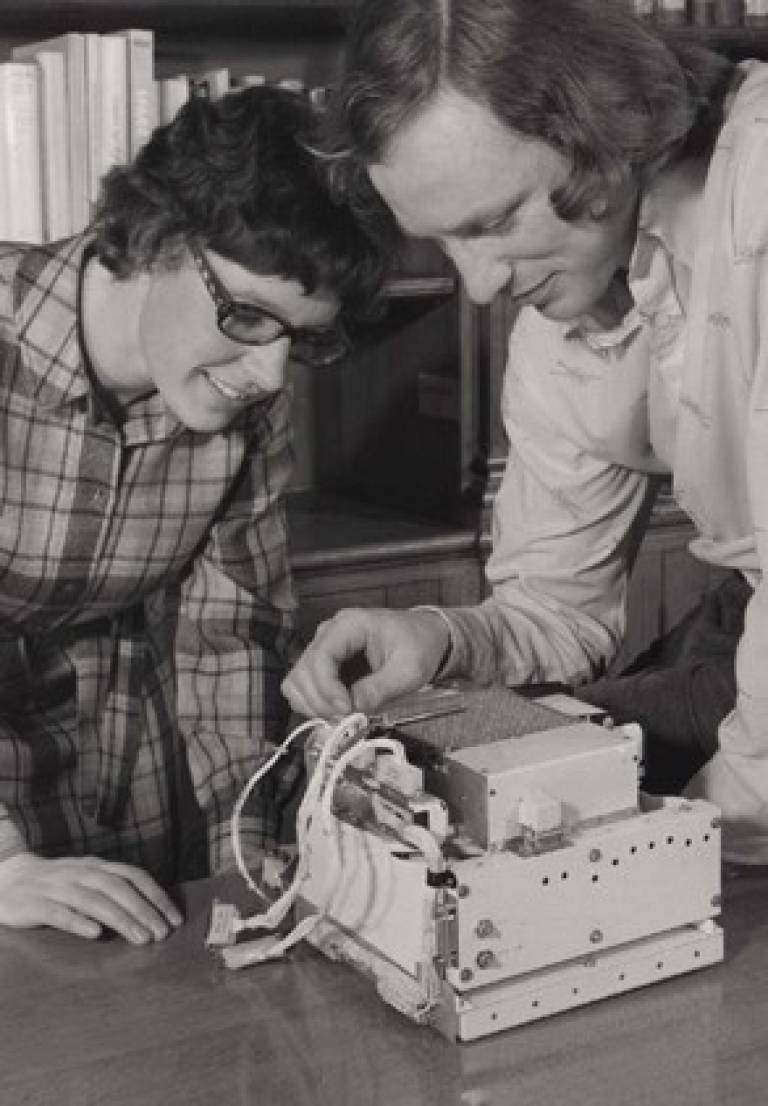Breakthrough Prize in Fundamental Physics awarded to Jocelyn Bell Burnell for discovery of pulsars
10 September 2018
Breakthrough Prize recognizes Bell Burnell's 1967 detection of radio signals from rapidly spinning, super-dense neutron stars and a lifetime of inspiring scientific leadership.

The Selection Committee of the Breakthrough Prize in Fundamental Physics today announced a Special Breakthrough Prize in Fundamental Physics recognising the British astrophysicist Dame Jocelyn Bell Burnell for her discovery of pulsars - a detection first announced in February 1968 - and her inspiring scientific leadership over the last five decades.
Bell Burnell receives the Prize "for fundamental contributions to the discovery of pulsars, and a lifetime of inspiring leadership in the scientific community." Pulsars are a highly magnetised, rapidly spinning form of the super-dense stars known as neutron stars. Their discovery was one of the biggest surprises in the history of astronomy, transforming neutron stars from science fiction to reality in a most dramatic way. Among many later consequences, it led to several powerful tests of Einstein's Theory of Relativity, and to a new understanding of the origin of the heavy elements in the universe.
Jocelyn Bell Burnell was a graduate student in the mid-1960s, working with Anthony Hewish at the University of Cambridge. While taking data with a new radio telescope that she had helped build, she found an unexpected signal: regular pulses of radio waves. With perceptiveness and persistence, she characterised the signal and showed it originated from space. She had discovered pulsars. Hewish shared with Sir Martin Ryle the 1974 Nobel Prize in Physics "for his decisive role in the discovery of pulsars."
As they rapidly rotate, pulsars emit radio waves, visible light, X-rays or gamma rays like a lighthouse beam sweeping the sky. It was this kind of radio emission that Bell Burnell detected. The regularity of these pulses makes pulsars extraordinarily accurate natural clocks - precise to one part in a thousand trillion - meaning a pulsar that is active today has slowed down by only about a second since the age of dinosaurs. Because of these properties, pulsars have helped astrophysicists map our galaxy and the visible universe.
During 1974-1982, Bell Burnell worked at the UCL Mullard Space Science Laboratory where she studied variable X-ray binary sources and X-ray transients and published several papers on the analysis of the Ariel 5 satellite X-ray data. In September 2013, she was awarded an honorary degree from UCL.
Yuri Milner, one of the founders of the Breakthrough Prizes, said, "Professor Bell Burnell thoroughly deserves this recognition. Her curiosity, diligent observations and rigorous analysis revealed some of the most interesting and mysterious objects in the Universe."
The Special Breakthrough Prize in Fundamental Physics can be awarded at any time in recognition of an extraordinary scientific achievement. This is the fourth Special Prize awarded: previous winners are Stephen Hawking, seven CERN scientists whose leadership led to the discovery of the Higgs boson, and the entire LIGO collaboration that detected gravitational waves.
Five decades after her dramatic discovery of the pulsar, Bell Burnell will be recognised at the 2018 Breakthrough Prize ceremony on Sunday, November 4, 2018, where the laureates of the annual physics prize will also be honoured, along with the winners of the Breakthrough Prizes in Life Sciences and Mathematics and the Breakthrough Junior Challenge.
For the last half-century, Bell Burnell has remained deeply engaged in astronomy, teaching at multiple research institutes and taking on leadership roles such as project manager of the James Clerk Maxwell Telescope in Hawaii. Ever a champion of science, education and the STEM curriculum, she has been President of the Royal Astronomical Society, and the first female President of both the Institute of Physics and the Royal Society of Edinburgh. Bell Burnell is currently a Visiting Professor of Astrophysics at the University of Oxford, and Chancellor of the University of Dundee. She received a CBE in 1999 and a DBE in 2007 for her services to astronomy.
Links
Image
Ariel 5 Experiment C
Dr. Jocelyn Bell-Burnell who is responsible for the analysis of Experiment C data is shown features of the instrument by Mr. John Ives, Project Manager. ©UCL/MSSL
 Close
Close

